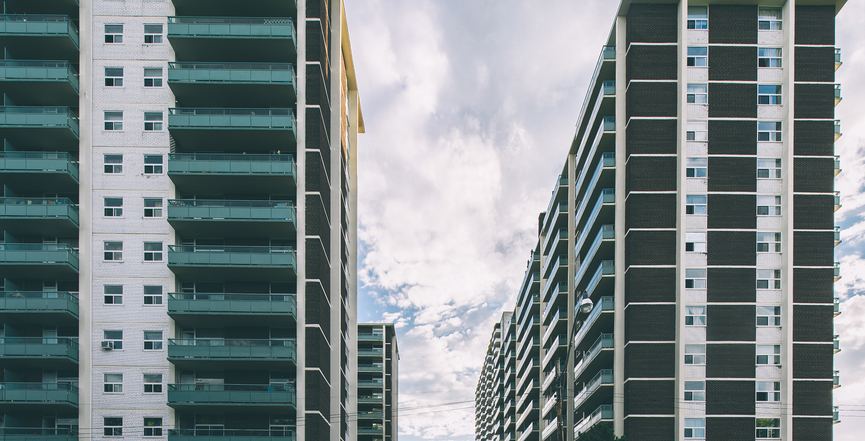The first cases of coronavirus are suspected to have occurred in Wuhan, China late last year. A few short months later, it has had far reaching and devastating consequences for economies around the world. Along with the loss of regular social contact and increasing uncertainty in employment, some will be at risk of losing access to housing. While several international treaties recognize housing as a human right, few governments have enacted domestic laws that ensure access to adequate housing for all citizens. In the midst of this global pandemic, calls for social distancing and sheltering in place are meaningless without access to shelter.
Halting evictions
Much housing legislation Canada falls to the provinces, and there appear to be divergent approaches to addressing the impact of the coronavirus on housing security across the country. While provinces like Ontario, Quebec, British Columbia and Saskatchewan have imposed suspensions on evictions at this time, Alberta has refused to follow suit. Jason Kenney, in particular, has decried the implementation of a blanket solution and instead reportedly called for landlords to show empathy.
Rent banks
A landlord’s association in Saskatchewan has called on the province to create a “rent bank” through which the province could deposit rent payments to landlords on behalf of tenants facing income precarity, mirroring a program that already exists in other provinces. Even prior to the advent of coronavirus, the Toronto Rent Bank Program has offered one-time interest-free repayable loans to low-income households facing eviction as a result of short-term financial difficulties. Presumably, funds will need to be boosted considerably in light of increased needs that will arise during this time.
Rent postponement or rent freeze?
While Ontario, Quebec, British Columbia and Saskatchewan appear to be ahead of other provinces by preventing eviction orders from being issued or enforced, it is unclear how long these measures will last and whether rent arrears accumulated during the pandemic will be excused or simply postponed, such that landlords could proceed with evictions once the period of postponement expires. The ability to delay rent may give certainty to some, but those struggling to regain their footing are unlikely to be able to pay off several months’ worth of arrears in the months following the crisis without substantial government support. Some have argued that, in addition to a moratorium on evictions, there should be a freeze on rental rates over the course of this pandemic and following it to prevent gouging by landlords. One expert based in the U.K. has gone so far as to argue for a full rent break, noting that landlords, unlike tenants, have an asset to fall back on, and, accordingly, the capacity to bear the inevitable costs flowing from COVID-19.
Non-profit housing providers
Special attention must be given to non-profit housing providers who may be at risk of being unable to continue operations, including property management and maintenance, without receipt of payments from residents. Certain federally funded housing co-operatives have already navigated their way through the end of operating agreements and guaranteed government funding. However, now is the time for the provincial and federal governments to provide adequate funding to ensure that non-payment of housing charges and/or rent by residents does not stymy the operations of social housing providers. Many non-profit housing providers will qualify for a temporary wage subsidy, which will give some relief, allowing for an additional 10 per cent of revenue.
Next steps
As we attempt to collectively navigate the “new normal,” it is critical that adequate measures be taken to ensure access to adequate housing. While the particulars of tenant legislation may fall to the provinces, the federal government should be part of a financial commitment in order to ensure that the policy objectives outlined in its National Housing Strategy are not thwarted as a result of this crisis. Provinces that have not yet instituted a policy prohibiting evictions during this time should do so, and serious consideration should be given to the possibility of rent assistance, rather than deferral, to reduce the burden on tenants.
Housing advocates have long insisted that stable, adequate housing is a precondition for other markers of success, like health, steady employment, and a sense of inclusion and dignity. At this time of global uncertainty and crisis, we would do particularly well to heed their call.
Iler Campbell LLP is a law firm serving co-ops, not-for-profits, charities and socially-minded small business and individuals in Ontario.
Pro Bono provides legal information designed to educate and entertain readers. But legal information is not the same as legal advice — the application of law to an individual’s specific circumstances. While efforts are made to ensure the legal information provided through these columns is useful, we strongly recommend you consult a lawyer for assistance with your particular situation to obtain accurate advice.
Submit requests for future Pro Bono topics to [email protected]. Read past Pro Bono columns here.
Image: Ashton Emanuel/Flickr
Editor’s note, March 26, 2020: A previous version of this article suggested the first suspected coronavirus case occurred in Wuhan, China on December 31, 2019. In fact, reports indicate the first case of COVID-19 can be traced back to November 17, 2019, while the first major outbreak is reported to have occured in December 2019. This article has been corrected to note that the first cases of COVID-19 occurred late last year.




